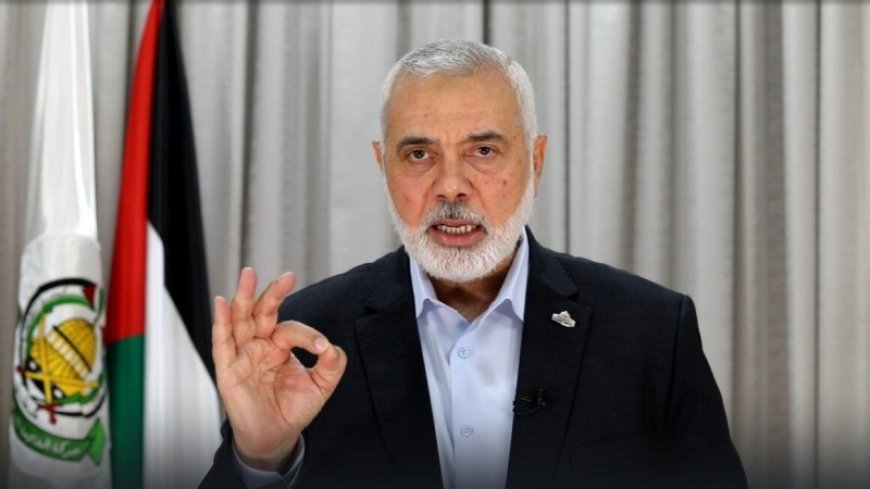Ismail Haniya, head of the Political Office of the Palestinian Islamic Resistance Movement HAMAS, has designated Saturday, August 3rd, as a "National and International Day to Support Gazans and Palestinian Prisoners." This announcement, made on Sunday, calls for widespread participation in marches and demonstrations aimed at ending what Haniya describes as Israel's ongoing war against Gaza and the mistreatment of Palestinian prisoners held in Israeli jails.
Haniya's call to action emphasizes the severe conditions faced by Palestinians in Gaza and prisoners in Israeli detention. He asserts that Gaza has been subjected to continuous aggression for ten months, resulting in numerous casualties. Furthermore, Haniya highlights the plight of Palestinian prisoners, alleging that they face harsh treatment, including psychological and physical torture, denial of medical care, and inadequate access to food and medicine.
The statement by Haniya criticizes the international community's silence and the perceived complicity of the United States in supporting Israel. He urges global solidarity and action to address the conditions in Gaza and the treatment of Palestinian prisoners.
In conjunction with Haniya's announcement, the Palestinian Prisoner Affairs Commission reported a rise in suicide attempts among prisoners due to inhumane treatment. According to the commission, seven Palestinian prisoners at the Ofer military prison in the occupied West Bank recently attempted suicide in response to the harsh conditions and abuse by prison guards.
The commission's statement detailed that prisoners are subjected to beatings during arrest and detention, exacerbating their suffering. These allegations have drawn international attention and calls for investigations into the treatment of Palestinian detainees.
International and Regional Reactions
The announcement by HAMAS and the subsequent reports from the Palestinian Prisoner Affairs Commission have elicited varied responses from the international community. Human rights organizations have reiterated calls for investigations into the treatment of Palestinian prisoners and for Israel to adhere to international human rights standards.
Israel, on the other hand, maintains that its security measures are necessary to prevent terrorism and protect its citizens. The Israeli government has consistently denied allegations of systematic abuse, stating that it operates within the bounds of international law.
Background Context
The situation in Gaza and the treatment of Palestinian prisoners remain highly contentious issues in the Israeli-Palestinian conflict. Gaza, a densely populated strip of land, has been under an Israeli blockade since 2007, leading to significant economic and humanitarian challenges. The blockade, combined with periodic military conflicts, has resulted in substantial civilian casualties and widespread destruction.
Palestinian prisoners held by Israel are often charged with security-related offenses, and their treatment has been a focal point of Palestinian grievances. Reports of harsh conditions and mistreatment in Israeli prisons have been a recurring issue, fueling tensions and calls for international intervention.
As August 3rd approaches, the international community will be watching closely to see the extent of global participation in the planned demonstrations and the potential impact on the broader Israeli-Palestinian conflict.














































